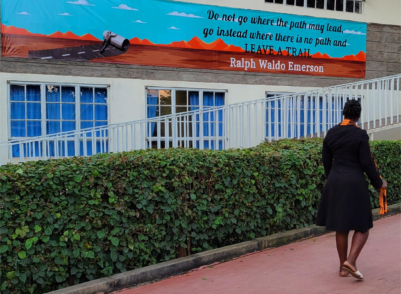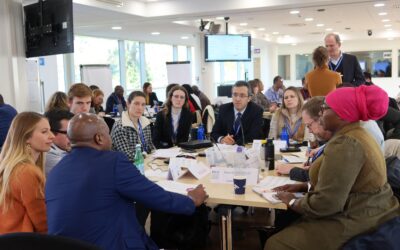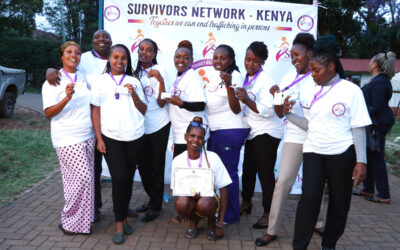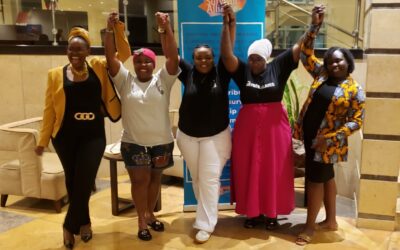Hey there, fellow advocates and allies in the anti-trafficking movement!
Today, let’s dive into an important question: Are survivors’ voices truly being heard?
Recently, a groundbreaking research report from Free The Slaves and HAART Kenya brought survivors of human trafficking and modern slavery to the forefront. The research project was completed with the assistance of survivor advocates, survivor leaders, and survivor- assistant researchers from both organizations, aimed to address key objectives: identifying gaps and challenges limiting inclusive survivor engagement, examining current engagement practices by organizations, and proposing strategies for improving the inclusion of survivors in East and Central Africa.
Here’s a brief roundup of what the report revealed:
- Many survivors were already active in society before connecting with specific organizations, motivated by their own experiences.
- The lack of finances emerged as a major barrier to sustained engagement, highlighting the need for more support.
- Survivors expressed a strong desire for job opportunities and better access to education.
- Survivor networks are highly valued, showcasing the importance of community and mutual support.
- Continuous psychological support and improved security were identified as critical needs.
So, how are we addressing these findings within the anti-trafficking movement?
Quoting from the research:
“Survivors are often expected to provide free labor as public speakers, fundraisers, ambassadors, and consultants. The majority of organizations hire survivors as volunteers, community mobilizers, and interns.”
Is this all that survivors can be?
What can we do differently? Have we sat down with survivors in our organizations and asked them what their needs and aspirations are, or is our approach to survivors resting on assumptions? Have we done all we can to support a survivor?
Let’s take a closer look at some gaps in survivor engagement:
- While many organizations provide essential services, engagement often stops there.
- Survivor engagement is often associated with service provision, with limited pathways for broader involvement.
- There’s a need for clear policies and procedures guiding survivor engagement and leadership.
It’s time to move beyond acknowledging these limitations and take meaningful action. Let’s shift our approach from limited engagement to true inclusivity. Survivors shouldn’t just be seen as beneficiaries—they are leaders, advocates, and experts in their own right.
As noted in the research by Free The Slaves and HAART Kenya,
“survivors are often still treated as helpless victims in search of assistance, as needy recipients of services, as lucky beneficiaries of the anti-slavery movement’s largesse, and as trauma-bearing individuals who are exclusively defined by their trauma.”
Are we giving (or are willing to give) to survivors the time that is needed for survivors to heal and be able to participate fully as valued employees of our organizations?
In my recent catch-up with Shivan, one of the survivor leaders, advocates and researchers who participated in the project, I felt that her contribution was valid and valued throughout, from beginning to end. Most decisions were made jointly by the survivor research assistants and the professional researchers. However, Shivan expressed a desire for greater inclusivity, suggesting that survivor researchers should be encouraged and given more room to lead and implement research projects. She noted that as a survivor, it was easier to relate to a certain level and gather the relevant information that was needed to accomplish the project.
As we navigate this journey, let’s embrace practices that prioritize meaningful inclusion. Survivors deserve to be involved in policy design, program evaluation, and decision-making processes.
In survivors’ reflections from the research,
“On joining the organization, I never knew I was trafficked. I just knew that I went through a situation that was not the best—joining the organization was when I got insight into what I went through. They also engaged me in other platforms where I was able to meet other survivors and equally gave me a space where I was able to talk about what I went through. That alone helped in my healing process. Joining the organization has really boosted me because I have been able to meet a lot of people that helped me.”
This brings up a critical question: When should an organization stop providing services to a survivor? Many organizations cater to the needs of survivors according to their individual circumstances, but how do we define these circumstances? How do we define success? Do we engage with survivors to determine what success means to survivors?
Together, let’s address these longstanding gaps and empower survivors to lead the way toward a more effective anti-trafficking movement.
Are you ready to listen, learn, and take action? Let’s make sure that survivors’ voices are not only amplified but truly heard!
“You never change your life until you step out of your comfort zone; change begins at the end of your comfort zone.” Roy T. Bennett said.
Warm regards,
Willz.




